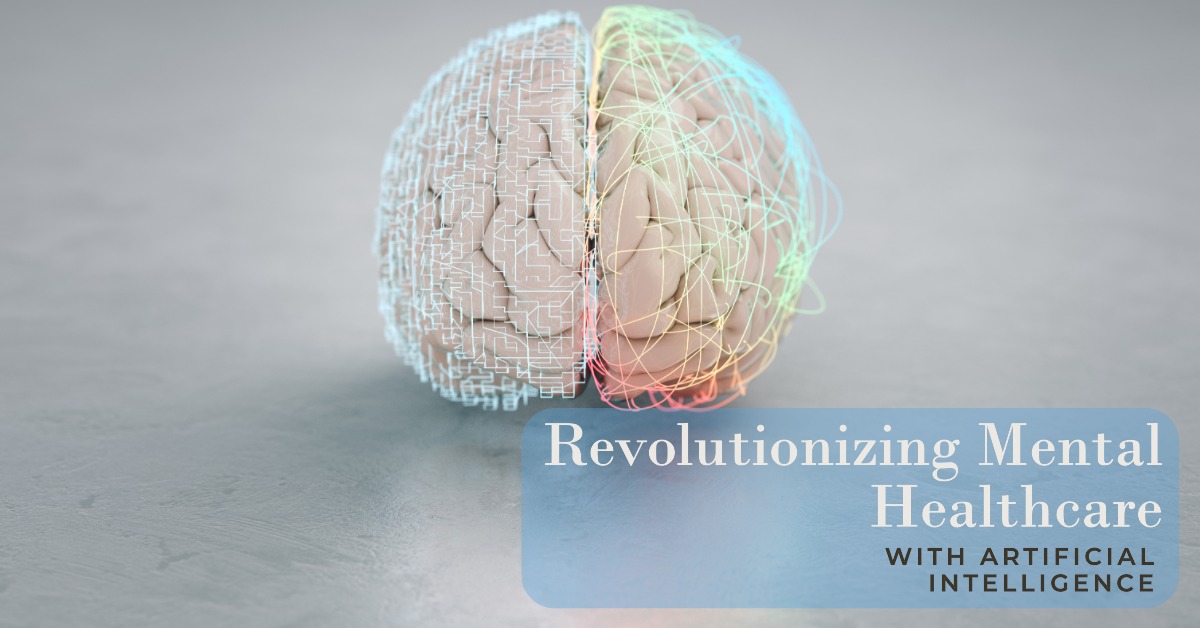
AI and Mental Health: Revolutionizing Mental Healthcare with Artificial Intelligence
Introduction
Artificial Intelligence (AI) is at the forefront of a revolution in mental healthcare, offering innovative solutions that are reshaping the way we diagnose, treat, and support individuals dealing with mental health challenges. By leveraging advanced algorithms and data analysis, AI technologies are enhancing the accessibility, efficiency, and effectiveness of mental health services. In this blog post, we'll explore in detail how AI is transforming mental healthcare and how health and life insurance sectors are integrating these advancements for the benefit of their policyholders.
1. AI-Powered Chatbots for Therapy and Counseling
AI-driven chatbots equipped with Natural Language Processing (NLP) capabilities are providing instant therapeutic support. These chatbots engage users in empathetic conversations, offering a safe space to express emotions, discuss concerns, and receive valuable guidance. Insurers are integrating these chatbots into their services, providing policyholders with on-demand counseling and mental health support.
2. Predictive Analytics for Early Intervention
AI algorithms analyze vast datasets, including medical records and behavioral patterns, to predict mental health disorders. By identifying early signs, insurers can proactively reach out to policyholders, offering preventive programs and interventions. This predictive approach not only improves health outcomes but also reduces insurance claims related to mental health conditions.
3. AI-Enhanced Digital Therapeutics
AI-powered digital therapeutics platforms offer evidence-based interventions for various mental health issues. These platforms deliver Cognitive Behavioral Therapy (CBT), mindfulness exercises, and relaxation techniques through interactive applications. Insurers are partnering with these platforms, providing policyholders with access to tailored mental health programs as part of their coverage.
4. Virtual Reality (VR) Therapy and Exposure
VR therapy, guided by AI, immerses individuals in controlled virtual environments to address specific mental health challenges. Insurers are investing in VR-based programs that assist policyholders in overcoming phobias, PTSD, and anxiety disorders. These innovative therapies enhance traditional treatments, leading to better outcomes and improved policyholder well-being.
5. Personalized Health and Life Insurance Plans
Insurers are utilizing AI to customize mental health coverage within health and life insurance plans. Policyholders receive personalized mental health benefits, including access to AI-driven counseling services, therapy apps, and wellness programs. Tailored insurance plans reflect the individual's mental health needs, promoting holistic well-being.
6. AI-Driven Data Analysis for Risk Management
Insurers employ AI algorithms to analyze mental health data trends. By understanding these patterns, insurers can assess risks, design comprehensive coverage, and offer incentives for policyholders engaging in mental health support programs. AI-powered risk management ensures policyholders receive the most relevant and beneficial mental health services.
Conclusion
AI's integration into mental healthcare is enhancing the support available to individuals while enabling health and life insurance providers to offer comprehensive, personalized, and proactive coverage. By embracing these technological advancements, insurers are not only improving policyholder well-being but also creating a future where mental health support is readily accessible, stigma-free, and tailored to individual needs.



